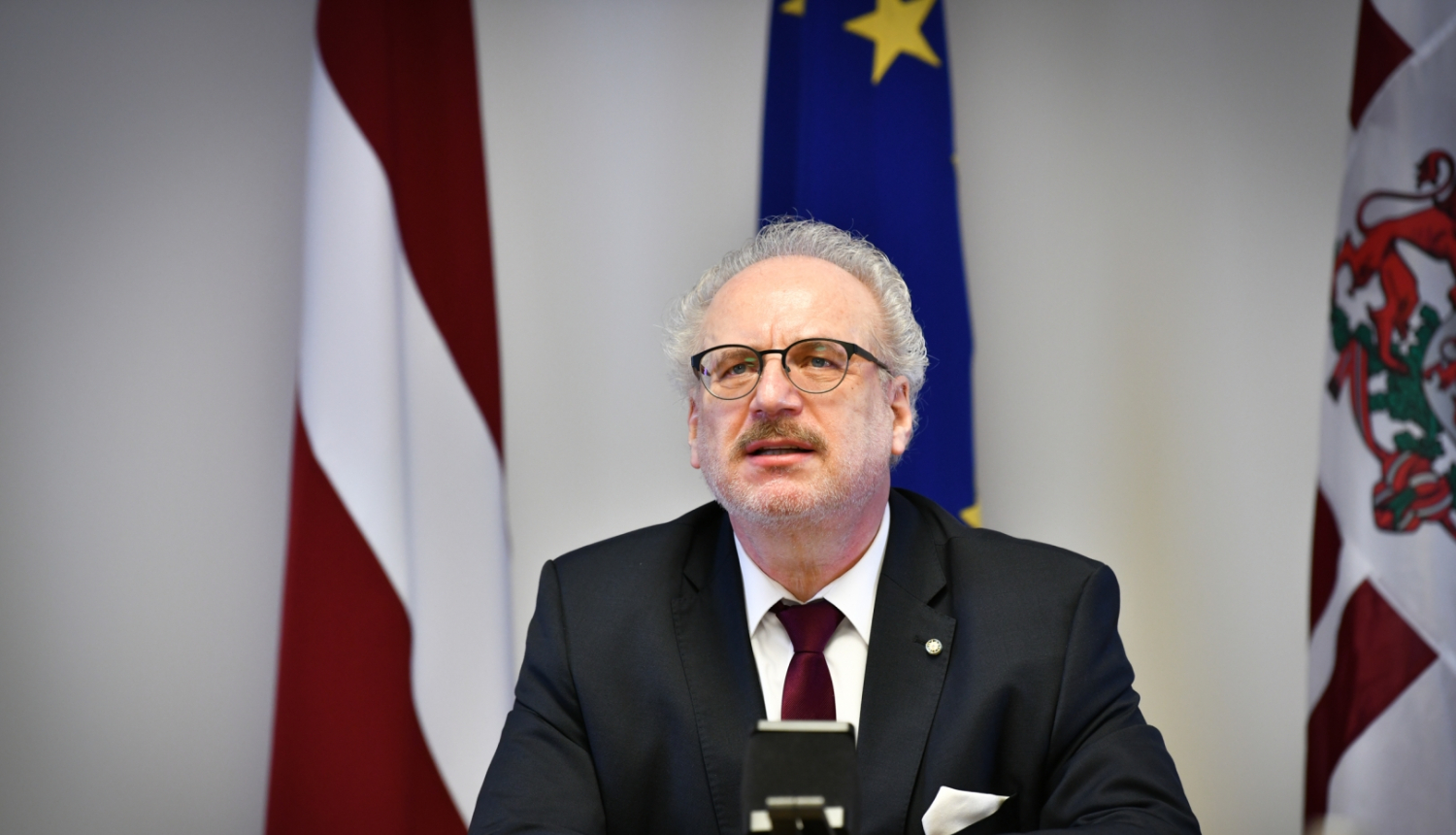On Monday, January 25, President of Latvia Egils Levits had a remote meeting with Interior Minister Sandis Ģirģens and heads of State Police, State Security Service, State Border Guard and State Fire and Rescue Service, during which officials discussed the need to strengthen the internal security.
Minister Ģirģens and heads of internal security services expressed their concerns about the poor condition of infrastructure, resources and reserves, as well as urgent need to find additional funding required to strengthen the capacity of these services to help them solve problems that have accrued due to constant underfunding.
According to Minister, better working conditions, new professional equipment and fleets are among the most urgent needs, so as the salary increase to a competitive level for the same job to avoid staff turnover. He called for pay reform, insisting that this would eliminate unnecessary human resource competition with defence sector and bring the salaries of detectives, prosecutors and judges under the uniform pay scale, and thus strengthen the rule of law in Latvia. Latvia should bring internal security support to the same level as in other two Baltic counterparts.
Modernising of these services requires digital transformation of existing processes, investments into staff digital skills, development of cyber-crime and internet crime units or divisions. Minister Ģirģens stressed that internal security is one of the main responsibilities of the state. It must be supported in planned, strategic and sufficient manner and provided sufficient funding in the next year’s budget and fiscal framework for the following years.
President Levits then took floor and said: ‘While external security of Latvia is one of the main national priorities since 2014 and nobody has any doubts that we should be spending 2% of our GDP on defence, our internal security has been somewhat forgotten for too long now. That is why our infrastructure has dilapidated, staff is underpaid and underqualified. We should not forget that our national security has external dimension, tackled by defence sector, and internal dimension, which is addressed by the interior sector.’
According to President, external and internal security are two pieces of the whole. ‘We will be able to stop worrying about the security and future of our state only when both the external and internal security are at a sufficient level. In recent years, we have made a substantial progress when it comes to defence, now Latvia needs to treat the safety of the people with the same level of accountability. We need to make a similar leap in the field of internal security in the coming years. Internal security, methodical strengthening of institutional capacity, including proper attention to emerging digital threats, should become the goals of an integrated national programme rolled out in the foreseeable future. We need an integrated approach to internal security and a concrete plan on how to systematically and methodically make it better – this year, next year and the following years. We need political support for such plan, and then we can allocate appropriate annual budget funding on the basis of this plan,’ said President Levits.
President and Interior Minister of Latvia then went on to discuss how to ensure modern standards in continuous education of interior sector professionals. Judicial Academy could be one of the best permanent further learning environments for judges, prosecutors and also detectives. This would also ensure more uniform interpretation of criminal procedures and prosecution steps among detectives, prosecutors and judges. There are currently problems with lack of such shared understanding, which leads to unreasonable delays in many criminal proceedings.
As stated previously, President Levits is a supporter of Justice Minister’s idea to establish a specialized Judicial Academy, which would serve as the place where law enforcement professional can continuously enhance their professional knowledge and skills. Such training would boost their legal proficiency, improve understanding of law and give them necessary technical and methodological skills.



